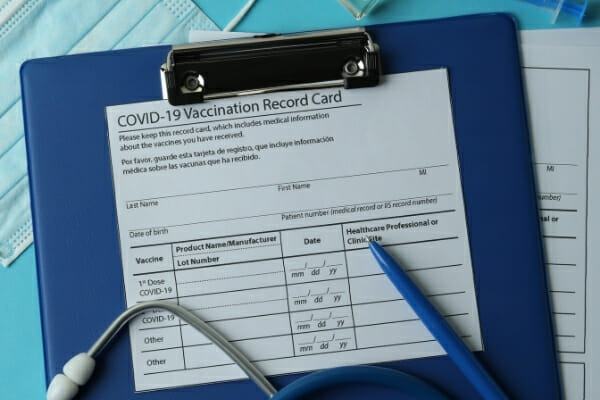You can provide incentives for employees to get a COVID shot — but there are caveats
 After months of confusion, the EEOC finally answered whether you can offer employees incentives to get covid shots. The short answer is yes. However, in truth, it’s not quite that simple. There are guidelines around what is and isn’t considered appropriate.
After months of confusion, the EEOC finally answered whether you can offer employees incentives to get covid shots. The short answer is yes. However, in truth, it’s not quite that simple. There are guidelines around what is and isn’t considered appropriate.
However, for once, the payroll part of this equation is easy—cash incentives are fully taxable. If you want to give employees the full amount, you’ll have to gross up the payment. Still, employers should understand the guides to avoid running afoul of regulations and facing the consequences.
Lollipops for shots
Whether you can offer incentives at all and how much of an incentive you can offer to employees who get shots depends on where they’re getting them.
- If employees get their shots from their doctor or another community provider, the EEOC seems to say your incentive can be unlimited. EEOC: You may offer incentives to employees to voluntarily provide documentation or other confirmation of their vaccine status and their family members’ vaccine status. But you must keep this information confidential.
- If you or your agent give employees their shots, you may provide incentives, provided those incentives aren’t so substantial as to be coercive. Unfortunately, the EEOC doesn’t define the line between legitimate incentives and coercive incentives. The IRS uses a non-coercive standard for wellness plan incentives, but the EEOC has always taken a much stricter view of non-coercive wellness plan incentives.
- If you or your agent give employees their shots and also offer to make shots available to employees’ family members, you can’t provide incentives to employees for encouraging their family members to be vaccinated. The EEOC says this violates the Genetic Information Nondiscrimination Act. Nevertheless, we think offering lollipops to the kids would be OK.
Some noncash and probably non-coercive incentives could include an extra day off at employees’ choosing, picking up the tab for breakfast or lunch, or allowing employees to go maskless (within CDC guidelines, of course).
Cash incentives, including gift cards, shouldn’t be too high because you’ll probably be grossing it up. Based on a handful of newspaper articles we’ve read recently, most companies offering cash are keeping it under $100.
 EEOC expands on earlier guidance
EEOC expands on earlier guidance
If you do decide to set up a voluntary vax clinic on the business premises or are operating a vax clinic in conjunction with a third party, the EEOC now clarifies that your pre-shot screening questions don’t have to be job-related and consistent with business necessity, as those terms are used in the Americans with Disabilities Act. But remember, employees’ participation must be voluntary.
Regardless of where employees get their shots—in the community or at work—the EEOC also reiterates that you may require employees to be vaccinated before they enter your premises. However, appropriate accommodations must be made for employees who are disabled or have religious objections to vaccinations. Making an accommodation isn’t necessary if doing would cause you to experience undue hardship.
Prior to instituting a mandatory vax policy, the EEOC recommends managers, supervisors, and others who are responsible for implementing the policy be provided with training and clear information regarding how to handle accommodation requests.
Reasonable accommodations for unvaccinated employees can include:
- Requiring them to wear masks
- Working at a physical distance from coworkers
- Working modified shifts
- Taking periodic covid tests
- Telecommuting
A vaccine requirement, however, must also take into consideration the possible disparate impact on certain groups of employees based on their race, color, religion, sex, or national origin. Employers should keep in mind that because some individuals or demographic groups may face greater barriers to receiving vaccinations than others, some employees may be more likely to be negatively impacted by a vaccination requirement.
Another couple of words from OSHA
Covid regulations are rumored to be pending at the Office of Information and Regulatory Affairs. In the meantime, OSHA says if you require employees to get shots, you don’t have to record any side effects. This forbearance will last until May 2022.




